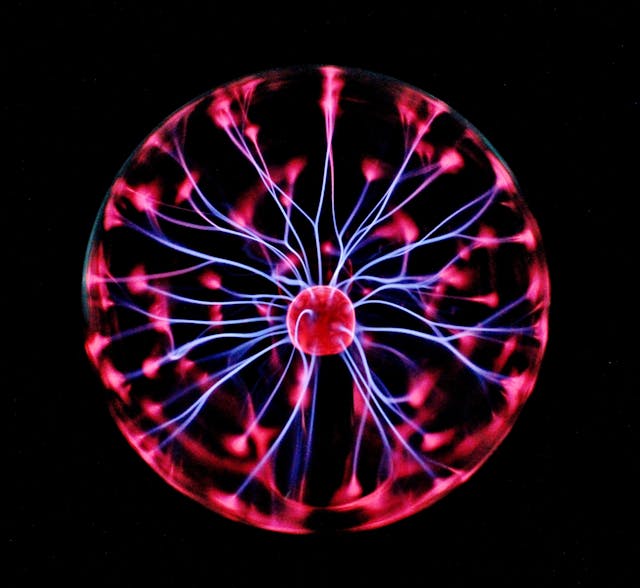
What is the conservation of energy? Conservation of energy is the principle behind the First Law of Thermodynamics. The Law of Conservation of Energy says that you can change the state of energy, but energy can never be created and energy can never be destroyed.
Before we look at this question, I think we need to try to understand what energy actually is. It isn’t just electricity or heat, although those are types of energy. Energy comes in many different forms. The definition of energy is “the capacity to do work or produce change”. So, what do we mean by “work”? “Work” is the transfer of energy to or from an object via the application of force. Basically, energy is what an object has, like gasoline in a car, and work is what is done, like the motor in the car driving it forward.
All of the energy in our universe was set at the point of the Big Bang. The Big Bang didn’t necessarily create that energy, but it did explode it out into the universe. No one obviously knows what happened in the Big Bang, and there are several different theories. Whatever did happen, in an infinitesimally small amount of time, all of the energy and matter that is in our universe now was blasted out, and the universe has been expanding ever since. The Law of Conservation of Energy says that you cannot create or destroy energy, so whatever energy is in the universe now is all that there ever will be. There is no way to add more energy to the universe. You also cannot remove energy, so the energy in the universe now will be there forever, until whatever happens at the end of the universe. The most likely theory is that the universe will keep expanding until all of the energy is spread so thin that there is not enough in any one place to do any work. This is the heat death of the universe idea. This is the maximum state of entropy. All of the energy will still be there, it just won’t be able to do anything.
So, you can’t create energy and you can’t destroy energy, but you can convert it from one form to another. A good example is my bicycle. If I want to cycle from A to B, I have to make the bicycle move using power from my muscles. The power that my muscles use to move is from the food I eat. My body takes chemical energy and turns it into kinetic energy. I eat a lot of vegetables to get that energy. Those vegetables have converted electromagnetic radiation into chemical energy through photosynthesis. Sometimes I want to warm my food up before I eat it, so I heat it on the oven. I have an IC oven, so it converts electrical energy into thermal energy. Maybe you have a gas oven though, in which case, it converts chemical energy into thermal energy.
There are no processes that turn one energy type neatly into a second energy type because nothing is completely efficient. For example, when I try to use chemical energy to make my muscles move, only about 25% of that energy goes into making kinetic energy. The other 75% of our chemical energy is converted into heat. This is a pretty useful byproduct most of the time because we need to be able to sustain our body temperature. When you cook your food over your gas fire, only about 40% of that chemical energy is being converted to thermal energy. The rest is converted to light (electromagnetic energy), sound energy, and kinetic energy. These are all different types of energy, but the sum total of the energy coming out will be exactly the same as the total going in. That cannot be changed.
There is a theory about the energy in the universe, which is that there isn’t actually any energy. An often talked about problem is, if you cannot create energy, then where did it come from? There are lots of theories and ways of looking at it, but one I found very interesting is this. Positive and negative energy cancel each other out. In our universe, we have positive energy. It is all around us and powers everything. However, there is also dark energy that we cannot see. The argument is that there is just as much dark energy as there is normal energy, and that these two cancel each other out. If 50% of the energy is normal and 50% of the energy is dark, the total amount of energy in the universe is zero. And this is what I learned today.
Sources
https://en.wikipedia.org/wiki/Heat_death_of_the_universe
https://www.eia.gov/energyexplained/what-is-energy/laws-of-energy.php
https://energyeducation.ca/encyclopedia/Law_of_conservation_of_energy
https://energyeducation.ca/encyclopedia/First_law_of_thermodynamics
https://www.bbc.co.uk/bitesize/guides/z8hsrwx/revision/4
https://en.wikipedia.org/wiki/Work_(physics)
Photo by Pixabay: https://www.pexels.com/photo/plasma-ball-illustration-414860/
